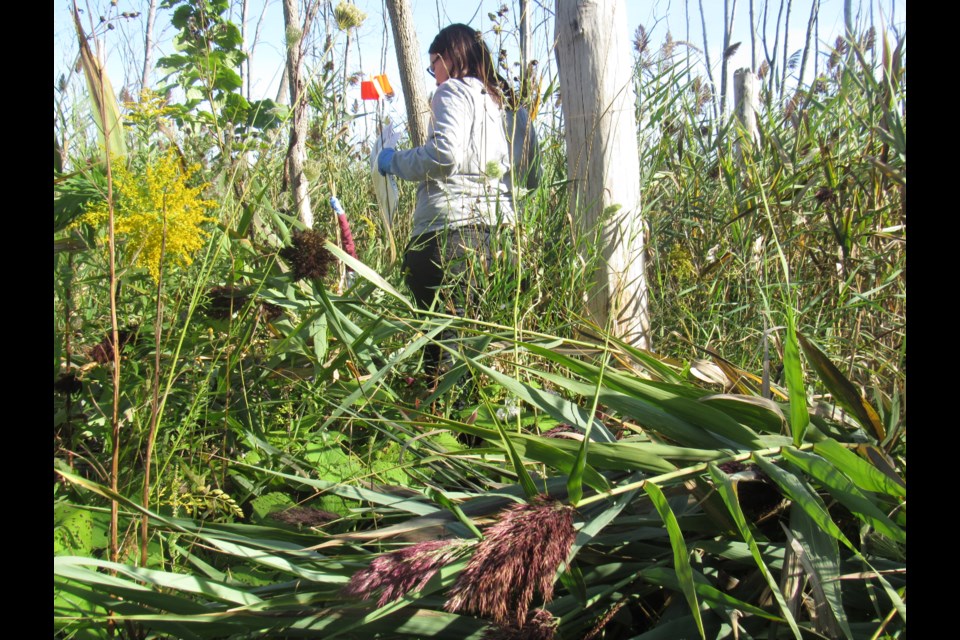It's sucking the life out of a city park and volunteers did everything they could Thursday to surgically remove it.
Approximately 50 community members went into the bush near Gallie Court in Barrie's northeast end yesterday to rid a wetland area of an invasive species called phragmites that's damaging the ecosystem in a local park.
Students from Georgian College’s environmental studies course teamed up people from Royal Victoria Regional Health Centre (RVH) and local residents yesterday afternoon to get rid of invasive plant.
The Nottawasaga Valley Conservation Authority (NVCA) and Nature Barrie, a community environmental protection group, joined in at the Dunsmore wetland, near RVH, to cut down phragmites.
Retired physician and member of Nature Barrie Dr. Rick Irvin said he had seen the phragmites while at RVH last year and took pictures to let hospital officials and other groups know that the species was growing steadily and choking out other plants.
“The issue with this plant is they stop other plants from growing, where they are other species of plants can’t grow, so it causes amok in an entire ecosystem,” said Irvin. “Cutting them down is fairly easy, but, of course, we are in the muck and poison ivy, so we do need to be cautious.”
Invasive phragmites is an aggressive plant that spreads quickly and out-competes native species for water and nutrients.
It releases toxins from its roots into the soil to hinder the growth of and kill surrounding plants.
Getting rid of the plants requires significant manual labour, as the canes must be cut individually below the water line and the seed heads carefully removed and disposed of according to guidelines recommended by the NVCA.
Approximately 30 students joined in with cutters supplied by RVH.
Environmental studies professor Jim Karagatzides told BarrieToday the benefit for the students was more than just getting out of the classroom.
“The first part (of the semester) is curriculum-based and for them to learn about field sampling, get their hands dirty and how we count plants in this situation,” said Karagatzides. “Secondly, they are cutting the phragmites, which helps their local community and helps them be more aware of an invasive species.”


